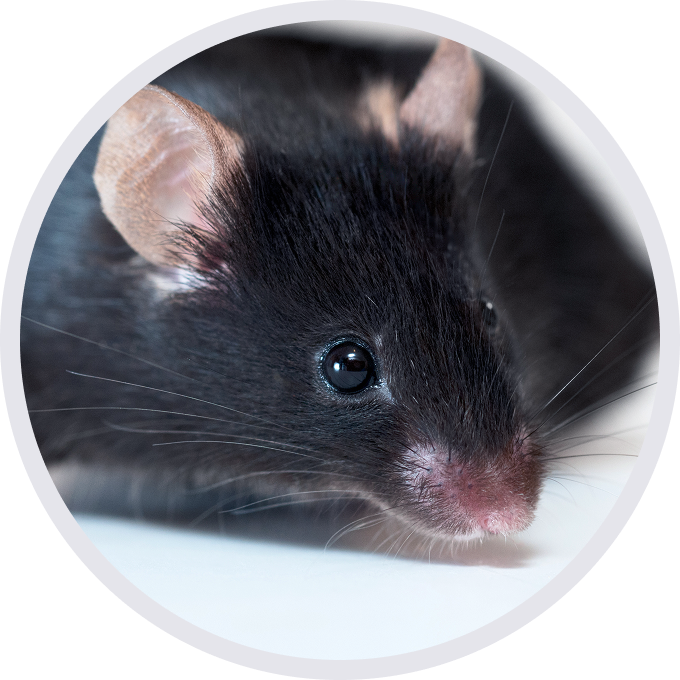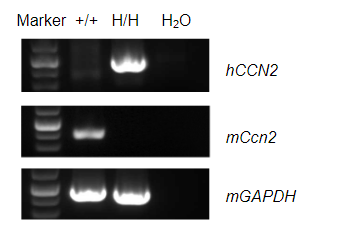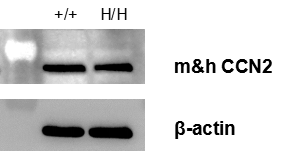


C57BL/6N-Ccn2tm2(CCN2)Bcgen/Bcgen • 111523
| Product name | B-hCCN2 mice |
|---|---|
| Catalog number | 111523 |
| Strain name | C57BL/6N-Ccn2tm2(CCN2)Bcgen/Bcgen |
| Strain background | C57BL/6N |
| Aliases | CCN2,cellular communication network factor 2,CTGF, HCS24, IGFBP8, NOV2 |

Strain specific analysis of CCN2 gene expression in wild-type mice and B-hCCN2 mice by RT-PCR. Mouse Ccn2 mRNA was detectable in kidney of wild-type C57BL/6 mice (+/+). Human CCN2 mRNA was detectable only in homozygous B-hCCN2 mice but not in wild-type mice.

Strain specific CCN2 expression analysis in homozygous B-hCCN2 mice by western blot. Kidney tissues were collected from wild-type C57BL/6 mice (+/+) and homozygous B-hCCN2 mice (H/H), and analyzed by western blot with anti-CCN2 antibody. CCN2 was detectable in wild-type mice and homozygous B-hCCN2 mice, as the antibody is cross-reactive between human and mouse.

Anti-human CCN2 antibody inhibits collagen deposition in lungs of bleomycin-treated B-hCCN2 mice.B-hCCN2 mice were assigned to one saline non-bleomycin control group (n=4) and two bleomycin-treated fibrosis groups (n=9) which were treated with pamrevlumab (in house, anti-human CCN2) or vehicle. Pamrevlumab treatment was able to improve bleomycin-induced weight loss in B-hCCN2 mice(A). Fibrosis in this model was scored by the standard measure of total lung HYP. In control mice, bleomycin treatment increases HYP content compared with controls. Compared with vehicle-treated bleomycin controls, pamrevlumab treatment resulted in a reduction in mean induced lung HYP content (B). Values are expressed as mean ± SEM. *** p